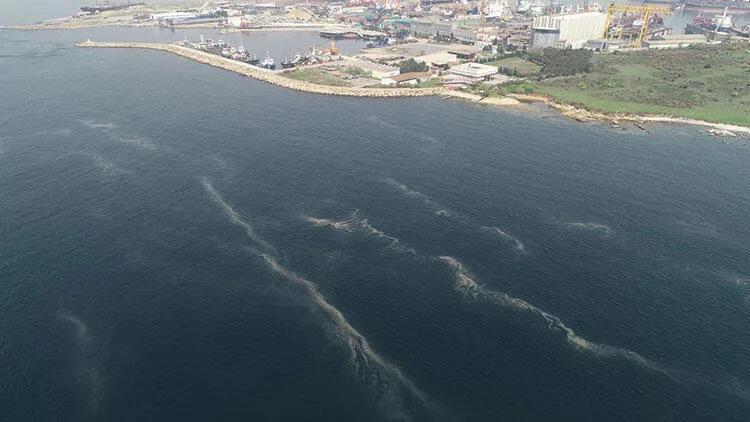
The Marmara Sea is resisting a potential new mucilage formation at the seabed and new sponges emerging, a marine expert has said.
“I have seen that the mucilage on the rocks inside the sea have vanished and new sponges have emerged on the sands of the seabed,” Mustafa Sarı, a professor from Bandırma Onyedi Eylül University, noted on May 9.
Mucilage, a thick and slimy substance made up of compounds released by marine organisms, surfaced on the Marmara Sea in May last year, and invaded a large area in June the same year, alarming marine biologists, environmentalists and eventually officials.
“I have made regular dives into the Marmara Sea between June 2021 and this April. In this period, I never saw any sponge formation on the seabed,” the professor said. “However, recently, I have photographed some new sponges on the seabed.”
Sarı, who is also a member of the Mucilage Science Board, added, “This vitality made me so happy.”
Calling the formation of the sponges a “ray of hope,” Sarı made a call to “help the sea.”
The priority is to not pollute the sea with waste oil as “one liter of it pollutes 1,000 tons of seawater.”
When asked if the danger of the mucilage has vanished this year, he said, “We must not directly say that we got rid of it. The water temperatures may trigger the formation of the mucilage in the coming days.”
Turkey launched a massive cleanup campaign in 15 districts of seven provinces along the coast of the Marmara Sea on June 8, 2021, to eliminate the aggravating mucilage problem that has severely affected the marine ecosystem.
Based on the 22-point action plan announced by the Environment, Urbanization and Climate Change Ministry, authorities started a comprehensive cleaning campaign in Istanbul, Kocaeli, Bursa, Balıkesir, Yalova, Çanakkale and Tekirdağ.
Within the scope of this massive campaign, tons of mucilage collected with the help of vacuum trucks have been taken to treatment facilities in Istanbul, Tekirdağ, Kocaeli and Balıkesir.